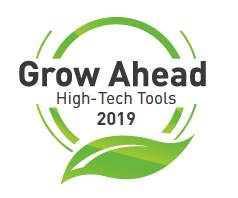

Jul 17, 2019Growers try new drip irrigation products, techniques


The upsides to drip irrigation are obvious to most growers – it not only conserves water compared to traditional methods but also can be a means for distributing water-soluble nutrients. Drip tape is now being deployed in different kinds of crops, provided to growers in different ways and used with higher-tech equipment than was previously possible.
Here are some drip tape innovation stories from Western vegetable growers:
Ocean Mist Farms


Ocean Mist Farms grows a variety of vegetables but is best known for artichokes, in Castroville, California. Ninety percent of its operations use drip tape – which the company said uses 70% less water than sprinkler irrigation, and also saves on electrical and labor needs.
Ocean Mist Farms CEO Joe Pezzini said drip irrigation has changed since the vegetable grower started using it roughly 10 years ago.
“It’s gone from tape that you would roll out and then pick up after the crop was done, and then reuse it – maybe three, four, five times, as many times as you could, but of course you have to deal with leaks and fix all those,” he said.
Now, a third-party vendor drops off single-use drip tape, which Ocean Mist installs. After harvest, the vendor pulls up the tape and recycles it. That business model seems to becoming more popular with growers.
There’s less labor to provide, and “since it’s always new tape, there are no holes to fix,” Pezzini said.
It’s not just about business. Environmental issues, too, are important to the company. Ocean Mist reuses irrigation water that is reclaimed and treated by the Castroville Seawater Intrusion Project and the Salinas Valley Reclamation Project. Ocean Mist Farms also donated a 30-acre parcel adjacent to its fields to the Elkhorn Slough Foundation.
“It kind of goes back to the whole idea that a farm is part of the environment it resides in, and it’s a part of the natural landscape,” Pezzini said. “And so, to maintain that landscape through conservation projects and wetlands restoration, that just makes a lot of sense, helps the long-term viability of that farm in the first place.”
Owyhee Produce
Based in Nyssa, Oregon, Owyhee Produce grows onions, asparagus, sweet potatoes and mint.
Owner Shay Myers, a prolific user of the social media site LinkedIn, in April shared a video of the group planting onions while laying drip tape. A highlight of the video was the farm’s complicated planting rig, a “Monosem vacuum planter, pulled behind a John Deere 7230R,” according to Myers. Running two planters side by side, he said, the group could cover “about 90 acres on a good day.”
But the irrigation side of things was just as interesting. Pressure-compensating drip tape allowed the team to plant a difficultly-sloped field.
Farm manager Jake May, Myers’ cousin, said that pressure-compensating tape has been around for 7-8 years but the products are rapidly improving.
“You can put tape on as steep as 10-15 degrees,” May said. The limiting factor has been the length of a stretch of drip tape. “When gravity takes effect, you gain momentum” and the increased water pressure will break the tape.
The answer for this has been to install “choker” devices at regular intervals along the length of the tape, he said. But the drip tape products have improved in the last 2-3 years, decreasing the number of chokers needed in a field. In previous years, a choker was needed every 800 feet, while now May is able to lay drip tape with a choker every 1,200 feet.
May has seen the benefits, although he said growers, in general, are hesitant to invest in technology that can cost about $30-$40 more per acre.
“The biggest challenge is the technology is changing every year,” May said. “Farmers are hesitant to say, ‘Oh yeah, sign me up.’”
Gourmet Trading


Gourmet Trading Asparagus Procurement Manager James House in March spoke at a Hart, Michigan, Asparagus Day event.
House provided some detailed analysis about major asparagus growing regions in the Americas, and one highlight was about the company’s efforts to get Western growers to use drip irrigation, or “berry tape,” in growing asparagus.
Gourmet Trading has about 450 acres of asparagus production in Pasco, Washington, and harvested about 300 acres last season, averaging about 10,000 packable pounds per acre. House said he encouraged the growers to plant new varieties like Guelph Millennium.
“We also made a decision to go very high-density, and so instead of throwing crowns where you’re getting about 24,000 plants per acre, we’ve direct seeded about 40,000 per acre, and we went to drip irrigation,” he said.
He explained his reasoning for using drip irrigation.
“We’re not trying to save water,” he said. Rather, he said, the weed problem is minimized.
“Because we’re using a berry drip, we don’t wet the surface of the soil,” he said. Less weed seed is touched by moisture and is able to germinate.
“We’re able to minimize our weed problem, which is tremendous up there. We don’t wet the foliage during the summertime, so we’re eliminating a lot of that leaf drop that we’ve seen with overhead pivot structures.”
He said the new ideas had a mixed reception from growers there. Drip tape was an unpopular approach for the growers, he said, because of the cost, about $2,000 per acre. High-density plantings and direct seeding have been quicker to catch on.
“It’s a new concept,” he said.
– Stephen Kloosterman, associate editor














